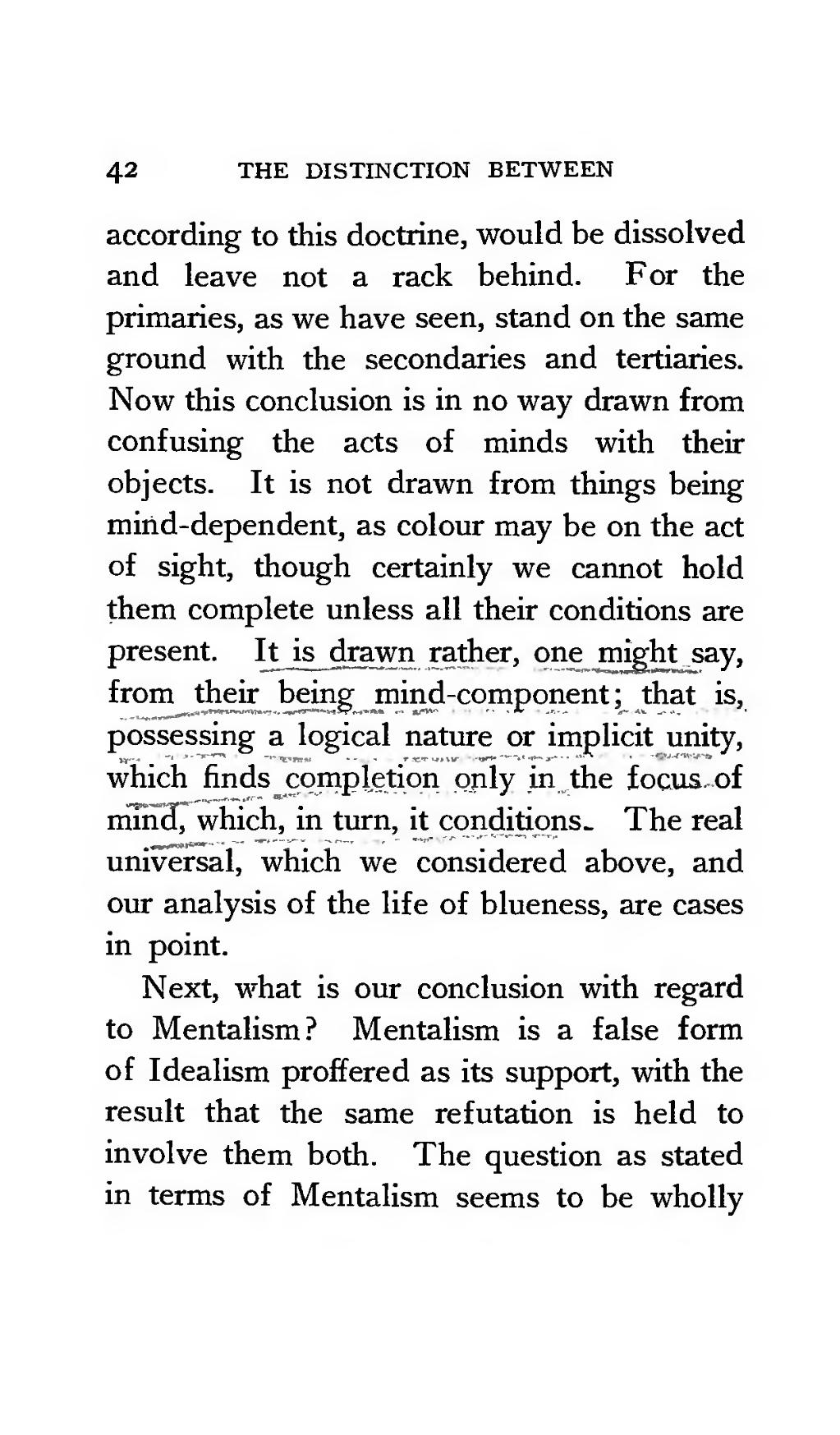according to this doctrine, would be dissolved and leave not a rack behind. For the primaries, as we have seen, stand on the same ground with the secondaries and tertiaries. Now this conclusion is in no way drawn from confusing the acts of minds with their objects. It is not drawn from things being mind-dependent, as colour may be on the act of sight, though certainly we cannot hold them complete unless all their conditions are present. It is drawn rather, one might say, from their being mind-component; that is, possessing a logical nature or implicit unity, which finds completion only in the focus of mind, which, in turn, it conditions. The real universal, which we considered above, and our analysis of the life of blueness, are cases in point.
Next, what is our conclusion with regard to Mentalism? Mentalism is a false form of Idealism proffered as its support, with the result that the same refutation is held to involve them both. The question as stated in terms of Mentalism seems to be wholly

